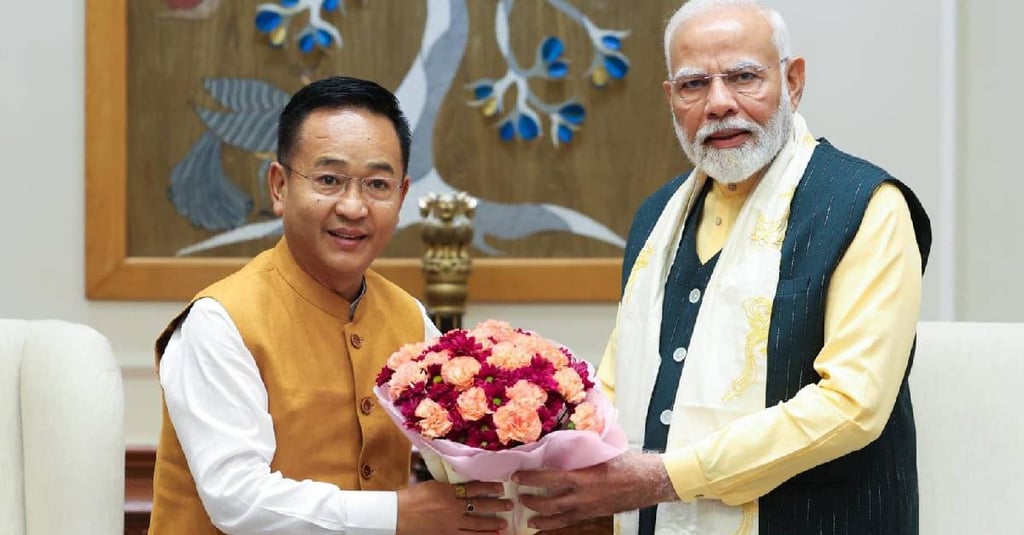CM Prem Singh Tamang: Rs 671.35 crore tax devolution to boost Sikkim’s growth
Sikkim’s allocation, though modest compared to larger states, is expected to catalyze growth in key sectors
LOCAL


Sikkim Chief Minister Prem Singh Tamang expressed gratitude to Prime Minister Narendra Modi and Finance Minister Nirmala Sitharaman for the timely release of Rs 671.35 crore as part of the tax devolution installment for January 2025.
Tamang said, “This timely support will play a pivotal role in accelerating Sikkim’s economic development, strengthening social welfare initiatives, and advancing critical infrastructure projects.” He further acknowledged the central government’s continued commitment to supporting smaller states like Sikkim in their development journey.
The ₹671.35 crore allocated to Sikkim is part of the Union government’s monthly tax devolution to states, aimed at sharing the net proceeds of union taxes and duties. For January 2025, the total distribution across all states amounts to significant financial backing, with Uttar Pradesh receiving the highest share of Rs 31,039.84 crore, followed by Bihar with Rs 17,403.36 crore and West Bengal with Rs 13,017.06 crore.
Sikkim’s allocation, though modest compared to larger states, is expected to catalyze growth in key sectors. The state government plans to utilize the funds to bolster social welfare schemes, improve public services, and expedite infrastructure projects critical to Sikkim’s economic resilience.
The devolution aligns with the Union government’s commitment to equitable financial support for all states, ensuring balanced regional development.
The distribution showcases the varied allocation of resources to states based on their specific needs and contributions. Among northeastern states, Assam leads with Rs 5,412.38 crore, followed by Arunachal Pradesh at Rs 3,040.14 crore. Sikkim, with Rs 671.35 crore, remains one of the smaller recipients.
This installment is a part of the Union government’s larger fiscal strategy to empower states, enabling them to meet development targets and address pressing local challenges.
